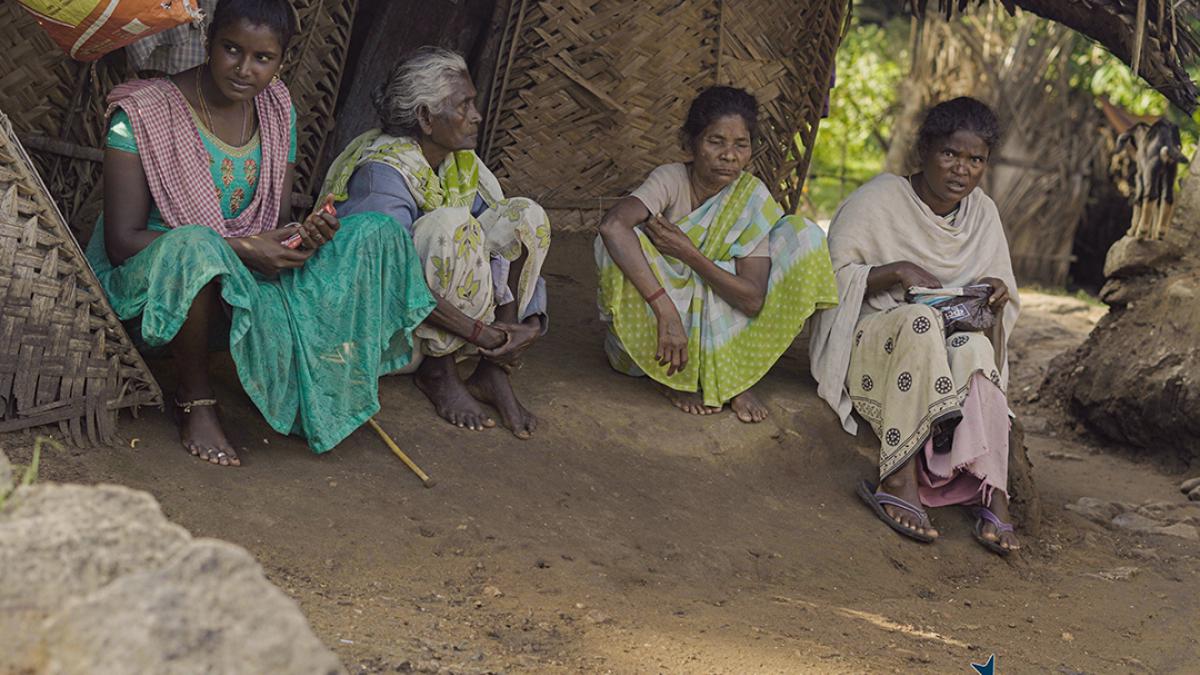
About 40 Malasar tribal families of Navamalai village, who used to live on the border of Tamil Nadu’s Anamalai Tiger Reserve have not only been denied the rights to ownership of their land, as conferred by the Forest Rights Act, 2006 (FRA), but have also been driven out of their ancestral land, where they have lived for five generations.
As their 100-acre agricultural land in Navamalai village is being completely used to plant coconut trees by the local owner known as ‘Chettiar’. They live in huts around 10 feet from steep banks of Aliyar River where encroachment even within 100 feet of the banks is not allowed.
The tribals who have been pushed to the margins of the village have to face all sorts hardships. They are perennially affected by heavy rains and floods which lead to soggy floors and crashing mud walls. As reported by NewsClick, the tribals have complained how their community members who went fishing have drowned in the river and how their chickens are washed away in floods during the monsoon season.
The tribals are distressed by lack of proper sanitation and electricity supply, poor access to healthcare and livelihood opportunities. Lack of electricity supply not only hinders their children’s studies after sunset, it also makes it difficult for them to protect themselves from snakebites. By driving them out of their ancestral property, the State government has deprived them of their source of livelihood as they source water, food and firewood from the forest as also graze their goats in the forest. Reportedly, many such tribe members were forced to migrate to cities as daily wage workers.
The President of Tamil Nadu Tribal People’s Association (TNTA), VS Paramasivam from Coimbatore told Newsclick, “In the name of Anamalai Tiger Reserve, the tribal settlement has been denied electricity access. According to the forest department, a power line would be dangerous to elephants, tigers and leopards. But the tribal people want to how electricity is supplied to the forest department offices?” Adding to this, he further stated, “Moreover, tourists, alcoholics and even anti-social elements stay in well-equipped cottages with the forest department’s permission. Private farms situated around tribal settlements have been provided electric fences to keep elephants away—but tribals, who protect the forests and nature, have been denied electricity.” He further alleges, “The forest department often imposes restrictions on the tribals and restricts their livelihood opportunities, particularly gathering of forest produce. The Anamalai Tiger Reserve’s joint director recently warned the forest dwellers to not use bamboo for building houses or collect firewood.”
TNTA believes that the forest department is trying to forcibly bring the land under their control just like they allegedly harassed the Anbu Nagar tribal settlement, near Aliyar Dam who also struggled a lot to protect their rights.
Related:
Still no recognition for non-ST tribes in India
CJP-AIUFWP petition NCST to take note of atrocities against Van Gujjars
Growing disaffection for BJP among Adivasis, ethnic minorities in Assam?